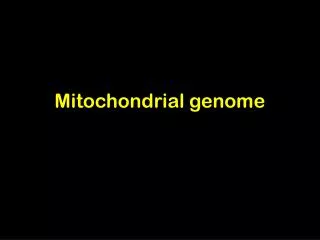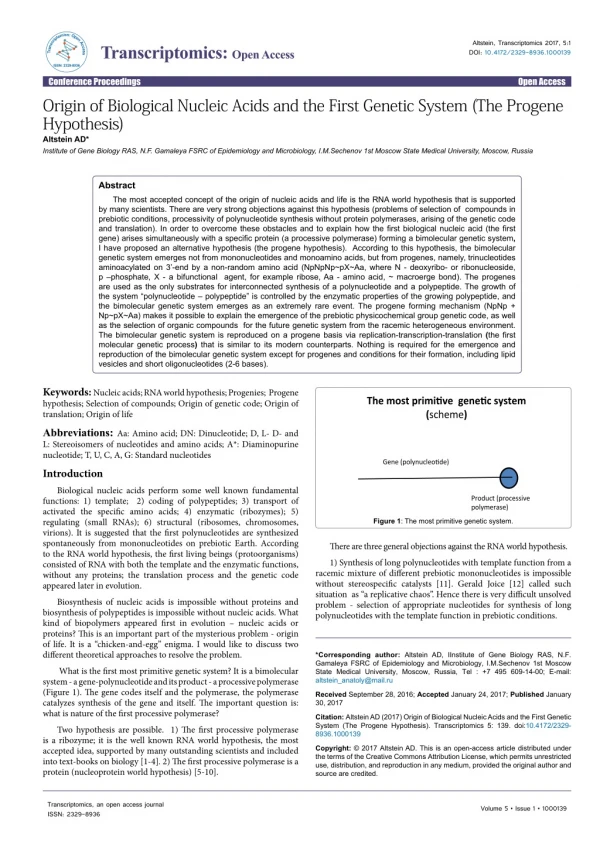Origin of Biological Nucleic Acids and the First Genetic System (The Progene Hypothesis)
The most accepted concept of the origin of nucleic acids and life is the RNA world hypothesis that is supported by many scientists. There are very strong objections against this hypothesis (problems of selection of compounds in prebiotic conditions, processivity of polynucleotide synthesis without protein polymerases, arising of the genetic code and translation). In order to overcome these obstacles and to explain how the first biological nucleic acid (the first gene) arises simultaneously with a specific protein (a processive polymerase) forming a bimolecular genetic system, I have proposed an alternative hypothesis (the progene hypothesis). According to this hypothesis, the bimolecular genetic system emerges not from mononucleotides and monoamino acids, but from progenes, namely, trinucleotides aminoacylated on 3u2019-end by a non-random amino acid (NpNpNp~pX~Aa, where N - deoxyribo- or ribonucleoside, p u2013phosphate, X - a bifunctional agent, for example ribose, Aa - amino acid, ~ macroerge bond).
★
★
★
★
★
66 views • 5 slides





